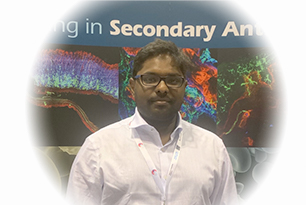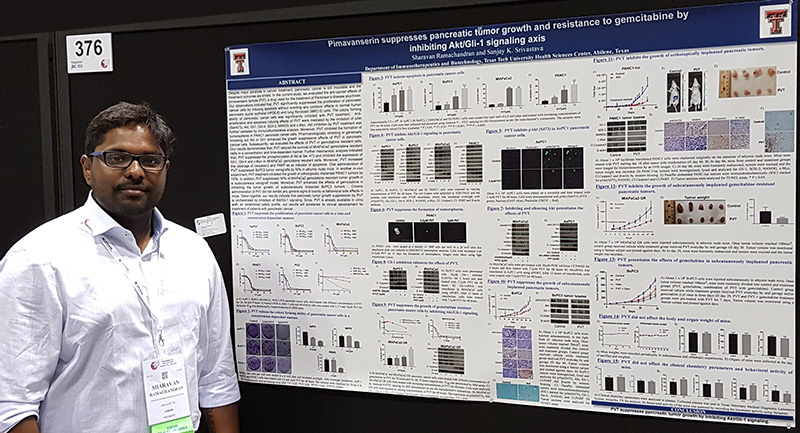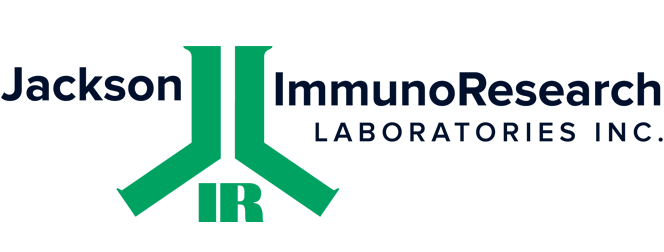

Congratulations to the recipient of Jackson ImmunoResearch’s $1000 travel grant for Experimental Biology 2019!
Jackson ImmunoResearch is delighted to offer travel funding to support researchers attending academic meetings and conferences.
JIR invited applications from attendees of Experimental Biology 2019 in Orlando Florida to receive a travel award of $1000 to be used against cost incurred to attend the meeting.
Experimental Biology’s 2019 annual meeting is the largest interdisciplinary meeting of its kind. It brings life science and biomedical researchers together from all over the world, to network and share cutting-edge research. Scientists from the fields of anatomy, biochemistry, molecular biology, investigative pathology, pharmacology, and physiology are able to share and collaborate over the course of the conference.
Find more information about Experimental Biology conferences here
Travel award winner EB 2019
The recipient of JIR’s EB 2019 travel grant was Sharavan Ramachandran, Sharavan is a Ph.D. candidate in Dr. Sanjay K. Srivastava Lab at the Texas Tech University Health Sciences Center. Read about his research and his experience at the Experimental Biology 2019.

Attending Experimental Biology 2019
“The Experimental Biology Annual Meeting, 2019 is one of the best international conferences for networking and collaborations. The curriculum of the networking sessions encompassed various subsets of personality and professional developmental training. Moreover, it’s significance towards life-science research deserves a special mention.
I joined the laboratory of Dr. Sanjay K. Srivastava at Texas Tech University Health Sciences Center in 2015 for my doctoral education. In the course of my extensive and detailed literature survey, I deciphered the role of CNS receptors in cancer progression. Aberrant expression of 5-HT2A receptors has been shown to stimulate Parkinson’s disease psychosis in brain and cancer progression. Anti-parkinson drugs such as carbidopa, amantadine, apomorphine, bromocriptine have been demonstrated to exert antineoplastic effects in various cancer models. In an effort to design novel strategies to combat the challenges in cancer treatment, I discovered a recently FDA approved anti-Parkinson drug pimavanserin to be effective against cancer. My doctoral research is thus based on investigating the anti-cancer effects of pimavanserin in various cancer models, including pancreatic cancer. Pimavanserin was FDA approved in 2016 for the treatment of Parkinson’s disease psychosis and from our findings, we inferred that pimavanserin could serve as a novel treatment option for pancreatic cancer. My long-term goal is to analyze the clinical efficacy of pimavanserin in cancer patients and establish pimavanserin as an anti-cancer drug.
I would like to express my sincere gratitude to Jackson Immunoresearch for supporting my travel to the Experimental Biology Annual Meeting. Moreover, this award provided me an opportunity to present my research on a global platform.”

Poster
Pimavanserin tartrate: A potential drug for pancreatic cancer therapy in future
Despite major advances in cancer treatment, pancreatic cancer is still incurable and the treatment outcomes are limited. In the current study, we evaluated the anti-cancer effects of pimavanserin tartrate (PVT), a drug used for the treatment of Parkinson’s disease psychosis. Our observations indicated that, PVT significantly suppressed the proliferation of pancreatic cancer cells by inducing apoptosis without exerting any cytotoxic effects in normal human pancreatic ductal epithelial (HPDE-6) cells. The colony forming ability of pancreatic cancer cells was significantly inhibited with PVT treatment.
Anti-proliferative and apoptosis inducing effects of PVT were mediated by the inhibition of pAkt (Ser473), Akt, Gli1, Oct-4, SOX-2, NANOG and c-Myc. Akt and Oct-4 inhibition by PVT treatment was further validated by immunofluorescence analysis. Moreover, PVT inhibited the formation of tumorspheres in PANC1 pancreatic cancer cells. Pharmacologically inhibiting or genetically knocking out Akt or Gli1 enhanced the growth suppressive effects of PVT in pancreatic cancer cells. Subsequently, we evaluated the effects of PVT in gemcitabine resistant cells. Our results demonstrated that, PVT reduced the survival by inducing apoptosis in MIAPaCa2 gemcitabine resistant cells in a concentration and time-dependent manner. Further mechanistic analysis indicated that, PVT suppressed the phosphorylation of Akt at Ser 473 and inhibited the expression of Gli1, Oct-4 and c-Myc in MIAPaCa2 gemcitabine resistant cells. Moreover, PVT increased the cleavage of caspase-3 and PARP as an indicator of apoptosis.
Oral administration of PVT suppressed BxPC3 tumor xenografts by 50% in athymic nude mice. In another in vivo experiment, PVT treatment inhibited the growth of orthotopically implanted PANC1 tumors by 75%. In addition, PVT suppressed 50% of MIAPaCa2 gemcitabine resistant tumor growth in a subcutaneous xenograft model. Chronic administration of PVT did not exhibit any general signs of toxicity or behavioral side effects in mice.
Taken together, our results indicate that pancreatic tumor growth suppression by PVT is orchestrated by inhibition of Akt/Gli-1 signaling. Since, PVT is already available in clinic with an established safety profile, our results will accelerate its clinical development for treatment of patients with pancreatic cancer.
Sharavan’s work features a variety of immunotechniques including western blotting, immunoprecipitation, ELISA and immunofluorescence employing Jackson ImmunoResearch immunoreagents such as bovine serum albumin and HRP conjugated anti-goat secondary Antibodies.
There are still further opportunities to apply for JIR’s 2019 travel grants for selected conferences here!
| Learn more: | Do more: |
|---|---|
| Direct and indirect Western blotting | Exhibition schedule |
| Choosing your secondary antibody | NIR conjugates for Western Blotting |
| Colorimetric Western blotting | Cite and win! |


